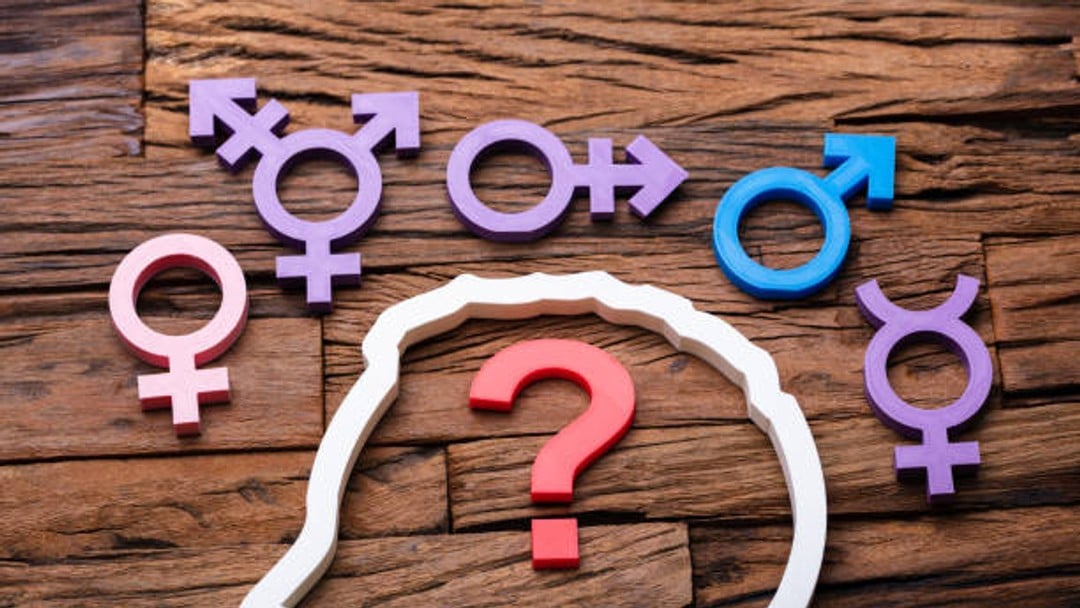BBC’s pause exposes Britain’s gender identity confusion

The BBC pauses inclusion workshops as the Supreme Court’s “biological sex” ruling reshapes equality law and workplace policy
It’s an on-again-off again hot topic, with coverage on a bi-daily basis pre-and-post April 2025. Recently, the BBC reportedly cancelled training workshops for its workers on transgender and LGBTQ+ issues as it delves deeper into how it should correctly use the word 'sex'.
Why? For fear of putting a foot wrong after the Supreme Court’s ruling on women’s rights and decision on the definition of ‘woman’ in the Equality Act 2010. A case of legal certainty creating social and practical challenges.
Chat GPT’s worldly wisdom defines sex as “the classification of living organisms, typically as male or female, based on their reproductive anatomy, chromosomes, and hormones. It goes further to state for humans and many animals; this is determined at birth”. [Chat GPT 15 October 2025]
The definition has become confused in an ever-changing translation with self-identified gender and now reclassified gender being left somewhat in limbo. There are significant implications of this clarification when it comes to legal compliance and workplace culture, given that it goes against previous guidance and interpretation. Many have said that the ruling has served to sideline trans voices and reinforced biological essentialism echoing the historical (but also prevalent) gender-based marginalisation of women.
It leads to the question, what was the reasoning for the ruling and has the impact been misjudged in modern evolving society when it comes to gender identification? You are not what you are; but what you want to be?
What did the Supreme Court actually say?
On April 16, 2025, the UK Supreme Court delivered a landmark ruling in Women Scotland Ltd v The Scottish Ministers [2025] UKSC 16, confirming that its interpretation of ‘sex’ under the Equality Act 2010 as "biological sex," rather than gender identity. This was a surprising outcome given the definition applies even where a Gender Recognition Certificate has been issued.
Lord Hodge presiding said “…. we counsel against reading this judgement as a triumph of one or more groups in our society at the expense of another, it is not."
What impact does this ruling have?
Where employers were preparing to adapt and implement working policies and procedures to factor in rights of individuals based on their self-identified gender, they are left dealing with a grey area where the rights and protections for transgender workers remain vague.
The practical implication is; for example, a trans women (biologically male at birth) does not have the right to be treated as women under the Equality Act 2010, even if she is in possession of a Gender Recognition Certificate (GRC) and so cannot use restroom facilities designated for use by women.
The ruling is said to have undermined the very purpose of obtaining a GRC which is an official document issued by the government that legally recognizes a person's gender as different from the one they were assigned at birth and allows them to get a new birth certificate. It provides full legal recognition of that person's acquired gender, meaning they must be treated as that gender in law.
Law -v- Logic
The law as it stands means that a person would be treated as their ‘acquired’ gender for purposes of marriage and pensions, but not the use of a changing room or toilet? The Court maintained that ‘gender reassignment’ remains a separately protected characteristic; trans individuals are still shielded from discrimination and harassment based on their trans status but not treated as their affirmed gender for sex-specific rights, positive action, or single-sex spaces. Surely this flies in the very face of the purpose of the Equality Act 2010 and aim to achieve fairness?
Code awaited
Following the ruling, new ECHR guidance was expected; following the interim guidance that was issued (but which has now been removed). Six months since the Supreme Court’s landmark ruling and there is still no approval of the code which has been updated to reflect significant developments in legislation and case law, including on the definition of disability and the threshold for a philosophical belief to be protected.
Following the ruling a second consultation on proposed updates to the guidance was held and following amendments the draft code was submitted to the UK government and awaits approval before it can be put before Parliament.
The ECHR is pushing for the code to become statutory guidance with Baroness Kishwer Falkner, EHRC chairwoman, saying: “It’s our mission to ensure people are treated fairly, consistent with the Equality Act. So as Britain’s independent equality regulator, we must put accurate information on the law in the hands of those that need it”.
It remains concerning that the current version of the 2011 code is now unlawful permitting practices inconsistent with the law.
The updated code of practice is accurate and comprehensive guidance on how services, public functions and associations should comply with the Equality Act, superseding all previous guidance from the EHRC.
Why is guidance needed?
This strict definition has created a host of issues across a number of areas.
Sex-segregated facilities, such as toilets, showers, and changing rooms need to be available based on biological sex. Where there are mixed-sex provision, facilities must be in lockable, private spaces. For trans identifying genders, daily routines like using restrooms and changing facilities come with increased risk of exclusion and discomfort.
What about roles that require single-sex provision? This is commonplace in certain care settings. Again, determination will be based on sex at birth.
The ruling which serves to separate sex and gender reassignment increases confusion. Claims relating to direct discrimination must be carefully distinguished from those involving harassment or positive action measures. Employers must adjust their positive action policies to focus only on biological sex, pending further reviews and guidance.
Victoria McCloud, the UK's first trans judge, has noted, there is new uncertainty and fear on a daily basis, including which facilities are safe or lawful to access, and stated that the judgement had left her with the legal ‘nonsense’ of ‘being two sexes at once’. There is an urgent need for policy frameworks and a defined Code to provide guidance on distinguishing procedures for sex-based and gender reassignment protections.
Conclusion
This Supreme Court decision is a decisive moment in UK equality law, creating new legal certainties but also significant social and workplace challenges as well as public debate over the real-life definition of women.
Is the true definition of ‘women’ yet to be defined? Is it, as Dr McCloud has suggested someone with the letter F on [her] birth certificate’ and is suggesting otherwise making the interpretation of the Equality Act incompatible with the Human Rights Act.
The debate rages on and social and political momentum could bring renewed legislative or judicial reconsideration but for now the UK is left navigating a confusing and arguably discriminatory ruling.

